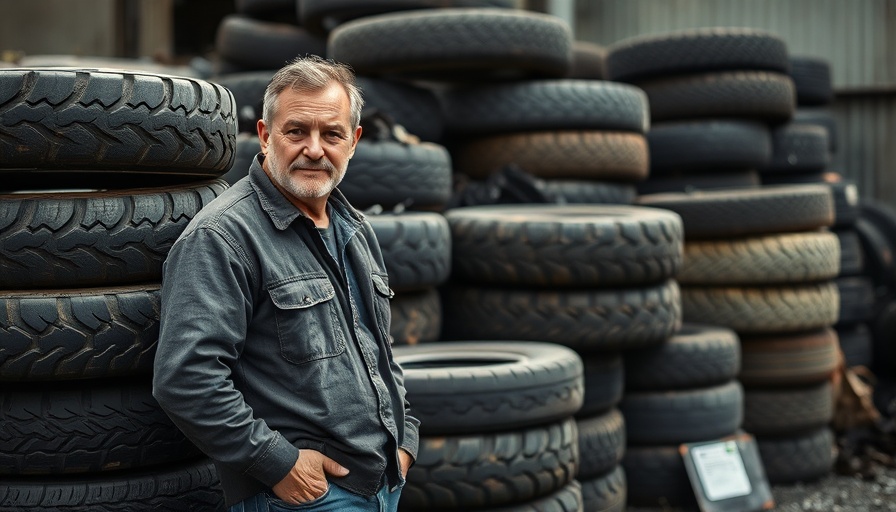
Revolutionizing Waste Management: Mathe Group's Impact on CO2 Emissions
The Mathe Group's recycling operations in KwaZulu-Natal have made waves in waste management, achieving the remarkable feat of recycling one million waste truck tyres. This innovative initiative, in action since 2017, has saved between 45,500 and 71,500 tons of CO2 emissions by transforming hazardous waste into valuable products. This not only demonstrates the potential of recycling but highlights the urgent need for effective tyre waste management in South Africa, where the discarded tyre count arguably exceeds the country's entire population.
Creating Value from Waste: The Journey of a Million Tyres
Mathe Group has effectively processed these tyres into approximately 38,500 tons of reusable rubber crumb. To put this into perspective, such a volume is sufficient to cover 385 full-size football fields or to pave about 8,000 km of roads, thus showcasing the vast resources hidden within waste. The CEO, Dr. Mehran Zarrebini, emphasized that each truck tyre weighs around 55 kg, wherein about 70% contributes to rubber crumb, while the remaining 30% consists of waste steel that is exported. This dual benefit of material recovery alleviates landfill pressures and contributes to a greener economy.
The Challenge of Tyre Recycling: A Growing Environmental Concern
Despite its success, the recycling sector faces significant hurdles. Current statistics reveal South Africa generates an alarming 240,000 to 250,000 tons of waste tyres annually, with a mere fraction being recycled. Many tyres are disposed of through informal means, including incineration, which poses severe environmental risks due to the release of toxins. The recent Industry Tyre Waste Management Plan, implemented under former Minister Barbara Creecy, recognizes the durability of tyres complicates landfill disposals.
The Benefits of Sustainable Practices in Tyre Recycling
In a country where waste management is critical, the Mathe Group's efforts pave the way for circular economy solutions. By addressing environmental hazards, we see the emergence of a green economy driven by sustainable practices. Beyond merely recycling, the company produces various products, such as paving blocks, flooring for agricultural applications, and even materials for the automotive industry.
Future Trends: South Africa's Recycling Landscape
Looking ahead, the Mathe Group aims to expand its operations. Despite challenges like load shedding and legal battles regarding the Industry Waste Tyre Management, the company anticipates the renewal of its tyre quota from the Waste Bureau, potentially facilitating further growth and innovation in tyre recycling.
Policy Implications for Progressive Waste Management
As policymakers are increasingly urged to integrate waste management solutions, the successes of the Mathe Group present a model worth emulating. Moves by the South African government should pivot towards not just managing waste but harnessing its potential to boost the economy through sustainable practices. Other industries might find inspiration in the successful re-purposing of waste tires and their integration into various applications across different sectors.
Takeaway: The New Frontier of Sustainable Waste Management
Mathe Group’s recycling achievements represent a beacon of hope within the environmental crisis surrounding waste tyres in South Africa. As the company continues to innovate, the broader implications serve as a powerful reminder that transforming waste into value is not just feasible but critical for the sustainability of our planet. Engaging in circular economy practices can mitigate climate change, foster economic growth, and lead towards a greener future.
 Add Row
Add Row  Add
Add 




Write A Comment